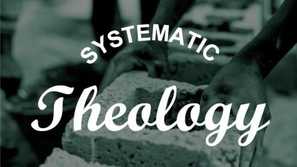
In the 13th Century when Aquinas wrote, it had become cool again to reason like Greek philosophers. 1,000 years earlier, the Platonic ideas about the Divine essence, logos, and demiurge had already shaped the language of 4th-century church creeds about Jesus’ divine nature and the Trinity. Now, the Greek categories were returning with the Renaissance to reconstruct the Christian faith. Aquinas embraced Aristotle and Plato in a historic act of unintentional syncretism. The systematic Greek logic behind his Summa Theologiae became the standard for structuring the Christian faith. The theological enterprise turned into a “sacred science” (in Aquinas’s words) with its “propositions” and “principles” similar to other philosophical sciences.
The long-term impact of Summa Theologiae on how theology is done was unintentional. Most theologians and historians frame Aquinas as an intellectual missionary. He was trying to express genuinely biblical faith in the language and concepts of contemporary thought leaders, just as the 4th and 5th century creeds were doing. In the most generous reading, Aquinas and the creeds are not examples of the Hellenization of the Gospel but of the evangelization of Hellenism (thank you Van Hoozer for this succinct framework!).
Unfortunately, the context of such contextual theology often gets forgotten in future forms that imitate it. Aquinas was no exception. Aquinas's theological science hopefully affected scientific philosophers in his day, but his Aristotelian assumptions likewise infected future Christian theology. Going forward, doctrine became synonymous with categorizing answers to topical theology questions (Yeah, I'm looking at you Dispensational and Reformed theologians ;) .
By the time Protestant reformers had their heyday in the 16th Century, the rules of the theological game had been established. The Christian faith did not find itself in a trail of divine action left through human history. It was more philosophically astute and well-ordered than that. Christian theologians were now expected to run past epistemological humility in grandiose efforts to restructure biblical content into answers for any doctrinal question (think Grudem’s Systematic Theology). Systematizing theologians of the Protestant tradition have long since employed a dangerous formula: Words from the Bible + culturally and linguistically determined logic = answers to every theological or ontological question. The diversity of biblical genres that embodied truth and the diachronic developments from Genesis to Revelation gave way to uniform answers delivered in synchronic slices that did not reflect a dominant form of delivering truth anywhere in Scripture.
Now what could be wrong with breaking up the Bible into properly categorized propositions? In short, everything. If your theology doesn't look like or act like the Bible itself, then it cannot represent its contents faithfully. It distorts not distillate it’s substance.






 RSS Feed
RSS Feed
